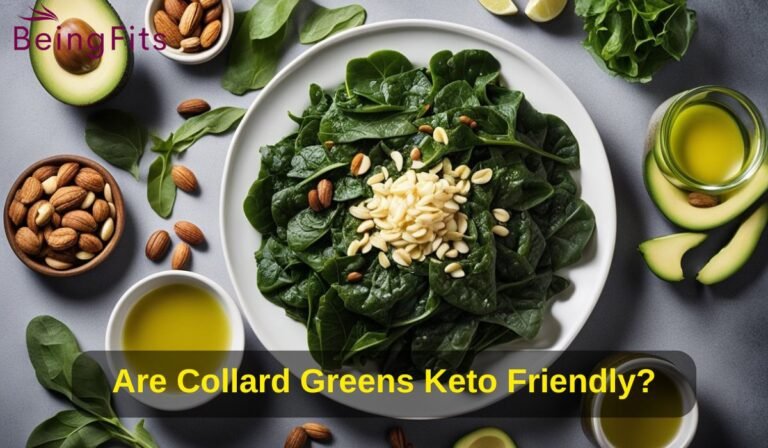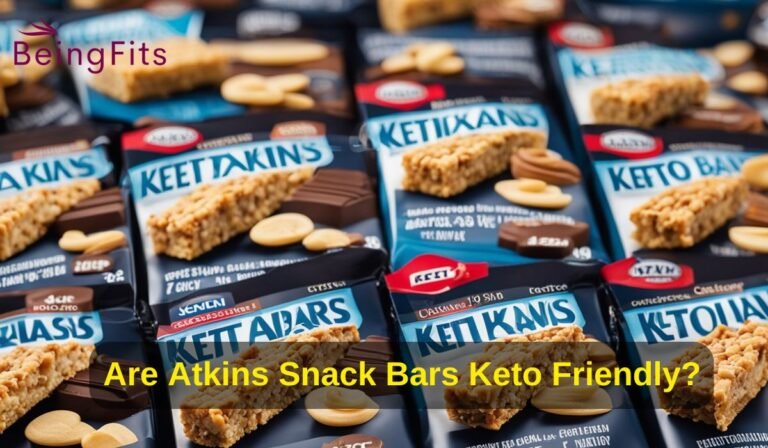Is Pineapple Juice Keto Friendly? A Quick Guide
If you’re following a keto diet, you may wonder if pineapple juice is keto-friendly. The keto diet is a low-carb, high-fat diet that aims to put your body into a state of ketosis, where it burns fat for fuel instead of carbohydrates. Since pineapple juice is high in carbs, it may not be the best choice for those following a keto diet.

Understanding the basics of the keto diet is essential to determine if pineapple juice is keto-friendly. The keto diet typically restricts carbohydrate intake to 20-50 grams per day, which is why many high-carb foods are not allowed on the diet. Pineapple juice is naturally high in sugar and carbohydrates, with one cup containing about 25 grams of carbs. However, there are ways to incorporate pineapple juice into a keto diet, such as by using it as a flavoring in recipes or by substituting it with lower-carb alternatives.
Key Takeaways
- The keto diet is a low-carb, high-fat diet that restricts carbohydrate intake to 20-50 grams per day.
- Pineapple juice is high in sugar and carbohydrates, with one cup containing about 25 grams of carbs, which may not be keto-friendly.
- You can incorporate pineapple juice into a keto diet by using it as a flavoring in recipes or substituting it with lower-carb alternatives.
Understanding Keto Diet Basics

If you’re new to the keto diet, it can be helpful to understand the basics before diving into the question of whether pineapple juice is keto-friendly. Here are some key concepts to keep in mind:
What Is Ketosis?
Ketosis is a metabolic state in which your body burns fat for fuel instead of carbohydrates. This is achieved by limiting your carbohydrate intake to a very low level, typically 20-50 grams per day. When you eat fewer carbs, your body starts to produce ketones, which are molecules that are used for energy instead of glucose. This is why the keto diet is often called a “low-carb, high-fat” diet.
Macronutrient Ratios on Keto
To achieve and maintain ketosis, it’s important to pay attention to the macronutrient ratios in your diet. This means focusing on getting the right amount of fat, protein, and carbohydrates in each meal. Here’s a breakdown of the typical macronutrient ratios on the keto diet:
- Fat: 70-80% of your daily calories
- Protein: 10-20% of your daily calories
- Carbohydrates: 5-10% of your daily calories
It’s important to note that everyone’s macronutrient needs can vary based on factors like age, gender, activity level, and weight loss goals. However, these ratios provide a good starting point for most people on the keto diet.
By understanding the basics of the keto diet, you can make more informed decisions about what foods to include in your diet. In the next section, we’ll explore whether pineapple juice fits into a keto-friendly diet.
Pineapple Juice Nutritional Profile

When it comes to the ketogenic diet, understanding the nutritional profile of the foods and drinks you consume is essential. In this section, we’ll take a closer look at the nutritional profile of pineapple juice.
Carbohydrate Content in Pineapple Juice
Pineapple juice is a sweet and refreshing drink that is packed with carbohydrates. According to Cast Iron Keto, a 100g serving of pineapple juice contains 44.3g of carbohydrates, including 43.6g of net carbs and 0.7g of dietary fiber. This high carbohydrate content makes it a less-than-ideal choice for those following a ketogenic diet.
Vitamins and Minerals in Pineapple Juice
While pineapple juice is high in carbohydrates, it does contain a variety of vitamins and minerals that can be beneficial to your health. According to Starters Kitchen, pineapple juice is a good source of vitamin C, which can help boost your immune system and protect your cells from damage. It also contains potassium, which is important for regulating your blood pressure and supporting healthy muscle function.
In addition to vitamin C and potassium, pineapple juice contains small amounts of other vitamins and minerals, including vitamin B6, magnesium, and calcium. However, it’s important to note that the high carbohydrate content of pineapple juice may outweigh these potential health benefits for those following a ketogenic diet.
Overall, while pineapple juice can be a tasty and refreshing drink, its high carbohydrate content makes it a less-than-ideal choice for those following a ketogenic diet. If you’re looking for a low-carb alternative, consider trying unsweetened coconut water or flavored sparkling water.
Is Pineapple Juice Keto-Friendly?

If you’re following a ketogenic diet, you might be wondering whether you can enjoy a glass of pineapple juice without affecting your ketosis. Pineapple juice is a sweet and refreshing beverage that is enjoyed by many, but it’s important to understand its impact on ketosis before consuming it.
Impact of Pineapple Juice on Ketosis
Pineapple juice is not keto-friendly due to its high sugar content. A 1-cup serving of unsweetened pineapple juice contains around 25 grams of carbohydrates, which is more than the daily carb limit for most people on a keto diet. Consuming too many carbs can kick you out of ketosis and make it harder to achieve your weight loss goals.
Moreover, pineapple juice has a high glycemic index, which means it can cause a rapid spike in blood sugar levels. This can lead to insulin resistance, weight gain, and other health issues over time. Therefore, it’s best to avoid pineapple juice if you want to stay in ketosis and maintain good health.
Alternatives to Pineapple Juice on Keto
Fortunately, there are many keto-friendly alternatives to pineapple juice that you can enjoy instead. Some of the best options include:
- Coconut water: This natural electrolyte-rich beverage is low in carbs and high in potassium, making it an excellent choice for hydration on a keto diet.
- Lemon water: Adding a slice of lemon to your water can give it a refreshing flavor without adding any sugar or carbs. Lemon water is also rich in vitamin C and antioxidants that can boost your immune system.
- Infused water: You can create your own flavored water by adding herbs, fruits, or vegetables to plain water. Some popular options include cucumber, mint, ginger, and berries.
- Herbal tea: Many herbal teas are naturally caffeine-free and low in carbs, making them a great alternative to sugary drinks. Some of the best options include chamomile, peppermint, and rooibos tea.
In conclusion, while pineapple juice may be delicious, it’s not keto-friendly due to its high sugar content and glycemic index. However, there are plenty of other tasty and healthy beverages that you can enjoy on a keto diet without compromising your goals.
How to Incorporate Pineapple Juice on a Keto Diet
If you’re a fan of pineapple juice and want to incorporate it into your keto diet, there are a few things to keep in mind. While pineapple juice is not the most keto-friendly drink, it is possible to include it in moderation.
Moderation and Serving Sizes
The key to incorporating pineapple juice into your keto diet is moderation. Pineapple juice is high in carbohydrates, which can quickly add up and kick you out of ketosis. Therefore, it’s essential to keep an eye on your serving sizes and limit your intake.
One serving of pineapple juice is typically 8 ounces, which contains around 30 grams of carbohydrates. To put that into perspective, that’s almost your entire daily carb allowance on a keto diet. So, it’s best to limit your pineapple juice intake to a few sips or a small glass.
If you’re using pineapple juice in a recipe, such as a marinade or a smoothie, be mindful of the other ingredients you’re using. Try to balance out the carbs by incorporating low-carb ingredients, such as leafy greens, avocado, or coconut milk.
In summary, incorporating pineapple juice into your keto diet is possible, but it requires moderation and careful consideration of serving sizes. By keeping an eye on your carb intake and balancing out your ingredients, you can still enjoy the sweet and tangy flavor of pineapple juice without compromising your keto goals.
Recipes and Substitutes
Keto-Friendly Pineapple Juice Recipes
If you’re craving the taste of pineapple juice but want to keep it keto-friendly, you can make your own homemade version with a few simple ingredients. Here’s a recipe you can try:
Keto Pineapple Juice
Ingredients:
- 1 cup unsweetened coconut water
- 1/2 cup fresh pineapple chunks
- 1/4 cup lime juice
- 1/4 cup fresh mint leaves
- 1 tsp. honey or low-carb sweetener (optional)
Instructions:
- Add all ingredients to a blender and blend until smooth.
- Strain the mixture through a fine-mesh strainer to remove any pulp.
- Serve over ice and enjoy!
This recipe is low in carbs and sugar, making it a great option for those following a keto diet. Plus, it’s packed with electrolytes from the coconut water and vitamin C from the pineapple and lime juice.
Substitute Ingredients for Pineapple Flavor
If you’re looking for a substitute for pineapple juice in your keto-friendly recipes, there are a few options you can try. Here are some ingredients that can provide a similar flavor:
- Lemon Juice: Lemon juice can provide a tart and tangy flavor that’s similar to pineapple juice. Use it in marinades, dressings, and sauces to add a bright and refreshing taste.
- Apple Cider Vinegar: Apple cider vinegar has a slightly sweet and acidic flavor that can mimic the taste of pineapple juice. It’s a great addition to salad dressings, marinades, and sauces.
- Orange Extract: Orange extract can provide a sweet and citrusy flavor that’s similar to pineapple juice. Use it in baked goods, smoothies, and other recipes that call for pineapple juice.
By using these substitute ingredients, you can still enjoy the delicious flavor of pineapple without going over your carb limit. Just remember to use them in moderation and adjust the amount based on your personal taste preferences.
FAQs About Is Pineapple Juice Keto Friendly?
Can you drink fruit juice while on a keto diet?
It depends on the fruit juice. Most fruit juices are high in sugar and carbs, making them unsuitable for a keto diet. Pineapple juice, for example, contains a lot of sugar and carbs, making it a less-than-ideal choice for those on a keto diet. However, some low-sugar fruit juices, such as lemon or lime juice, can be consumed in moderation on a keto diet.
What are some keto-friendly fruits to include in my diet?
Some keto-friendly fruits include berries, such as strawberries, raspberries, and blackberries, as well as avocados, olives, and tomatoes. These fruits are low in carbs and high in fiber and healthy fats, making them ideal for a keto diet.
How many carbs are in pineapple juice?
Pineapple juice is relatively high in carbs, with one cup containing around 32 grams of carbs. This makes it a less-than-ideal choice for those on a keto diet, as it can quickly add up and kick you out of ketosis.
Is it okay to consume pineapple on a low-carb diet?
Pineapple can be consumed in moderation on a low-carb diet, but it is important to be mindful of your carb intake. Pineapple is relatively high in sugar and carbs, so it is best to limit your intake to small portions and track your carb intake carefully.
What are some sweet keto substitutes for pineapple?
Some sweet keto substitutes for pineapple include berries, such as strawberries, raspberries, and blackberries, as well as coconut, which is naturally sweet and low in carbs. You can also experiment with keto-friendly sweeteners, such as stevia or erythritol, to add sweetness to your meals and snacks.
Are there any fruits to avoid because they are high in carbs when on keto?
Yes, some fruits are high in carbs and should be avoided on a keto diet. These include bananas, grapes, mangos, and other tropical fruits, as well as dried fruits, such as dates and raisins. It is important to read nutrition labels carefully and track your carb intake to ensure you stay within your daily carb limit.



